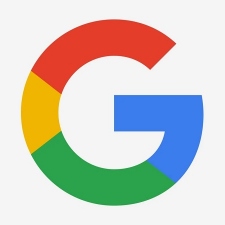Google has released its predictions for the top digital marketing trends of 2023.
Google estimates that it will be a turbulent period, as “the challenges and disruptions brought on by the pandemic, geopolitical tensions, and economic uncertainty will make it a year like no other”. As such, business leaders need to re-evaluate their strategies, with marketing taking a major role.
Google UK senior director of marketing, brand, and reputation Nishma Robb believes that companies can thrive if they push for more diverse and inclusive representation.
“Inadvertent bias can get in the way of inclusive media planning. For marketers to truly engage and connect with diverse audiences, they need to address this bias and embrace the breadth of content their audiences consume,” said Robb.
Director of creative works in Europe, the Middle East, and Africa Mailine Swildens states that advertisers can meaningly engage with customers by focusing in their impact on the world, and making that clear in advertising. Swildens highlights cat food brand Sheba’s launch of the world’s largest program to restore coral reefs, and the use of advertising revenue from YouTube to fund the campaign as an example of how brands can make a positive impact on the planet.
The power of privacy
President of Europe, the Middle East and Africa Matt Brittin states that a focus on privacy can help brands succeed.
“We found that privacy experiences impact user trust. But we were surprised to learn just how damaging a bad privacy experience online can be. Consumers view bad privacy experiences as almost as damaging as a theft of their data. It’s enough to make 43% of them switch to another brand.” Said Brittin.
Director of creative lab for Europe, the Middle East, and Africa Julia Hoffman believes that advertisers can thrive in 2023 by aiming at Gen Z and taking note of how they want to engage.
“In 2023, do not try to bring Gen Z audiences into your world, but meet them in theirs. Understand their unmet needs, prioritise relevance and authenticity over homogenous singularity, and embrace the diverse, visual worlds they inhabit.”
Global marketing director of commerce Stephanie Horton notes the surge in online shopping during the pandemic, and believes this will give the customer experience offered in-store added value in the coming year.
“Augmented reality (AR) and other immersive experiences have become key to achieving this. And the rise in use of AR technology means consumer demand for immersive experiences will become even more mainstream in 2023. In fact, more than a third of Gen Z are predicted to be shopping with AR by 2025,” said Horton.
Finally, Google managing director of video and display for Europe, the Middle East, and Africa Dyana Najdi highlights the rise in short-form videos as an opportunity for advertisers to grow.
“Brands don’t have to reinvent the wheel to use this newer video format. We’re currently experimenting with a machine learning tool that reformats landscape videos into square or vertical formats based on how someone is watching YouTube. It’s already available for App campaigns, with Video action and Performance Max coming in 2023.”
Earlier this month, we reported that 21 million consumers have launched a class action lawsuit against Google for anti-competitive practises.






















